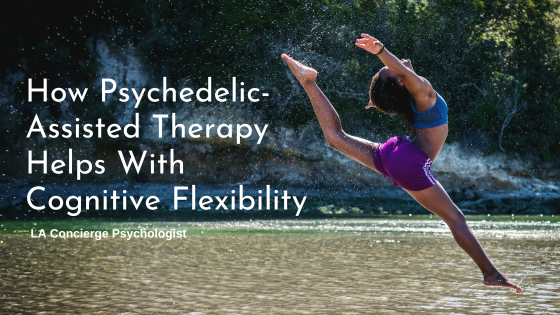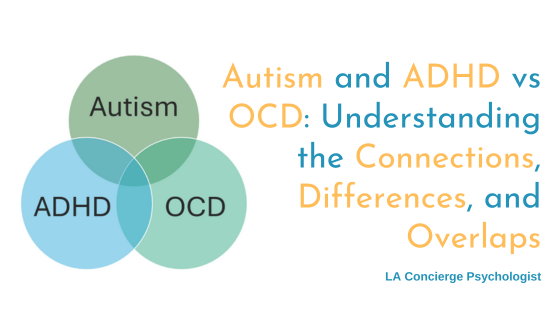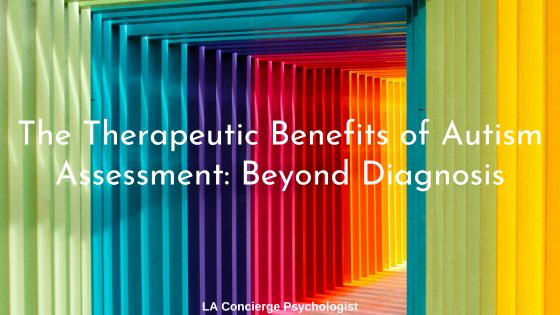For the past thirty to forty years, the medical model and psychological disorder lenses dominated the conversation about autism. Now, autistic voices are being heard. The neurodiversity perspective has grown in recognition and popularity. Neurodiversity-affirmative therapists are showing up, and they are tailoring their therapeutic approaches. This is similar to therapists who embrace and celebrate culturally diverse clients.
Medical Model
The medical model focuses on finding a cure for diseases and disorders. This perspective assumes that a person is broken in some way that needs to be fixed. The aim is to improve functioning. Doctors make someone more “whole” or help give them a “normal” life.
Psychological Model
The psychological model posits that multiple factors contribute to the development of a disorder. These factors include biological (e.g., physiology, neurology, genetics), psychological (e.g., ways of thinking), and social (e.g., the environment). Depending on the disorder, certain factors may weigh more heavily. This determines how therapists works with a person. Generally speaking, goals for treatment focus on helping someone return to their baseline functioning, assisting someone in functioning well in society, or maximizing their emotional well-being. Similar to the medical model, the psychological model views autism as a diagnosis or “disorder”.
Autism Through a Neurodiversity Lens
Neurodiversity explains that neurological differences between humans are actually natural genetic variations. Accordingly, the neurodiversity lens concludes that “non-neurotypical” symptoms and behaviors are a reflection of different ways human behavior and functioning can be expressed. Hence, these symptoms and behaviors are not a “disorder” or something that needs to be “fixed”. In a nutshell, neurodiversity touts that differences are not defects. They’re just, quite simply, differences.
The neurodiversity perspective acknowledges society pathologizes autistic behavior. Because autistic people are in the minority, they are often misunderstood, marginalized, and discriminated against. Much of the pain and suffering an autistic person endures stems from how negatively they are viewed and treated by the majority.
A Neurodiversity-Affirmative Approach to Therapy
As an adult autism specialist, I employ a neurodiversity-affirmative approach to working with my clients. I understand that neurodiversity is a part of human diversity; you don’t need fixing. I tend to think of autism as being its own unique culture. And, as with all of my culturally diverse clients, I don’t pathologize your culture. I want to understand your culture, not change it.
Beyond accepting, understanding, and celebrating autism, I typically incorporate the following into my work with autistic adults:
Identify and Address Ableist Attitudes
Ableism is discrimination in favor of able-bodied and neurotypical people. They view neurotypicalism as the standard to which all other behavior and ways of being should be judged upon. Ableist attitudes are so prevalent and deeply woven into our society that sometimes it can almost feel like an invisible poison. You know you’re suffering, but you can’t see exactly why. By making ableism visible, you now have a target to push back against.
Focus on Understanding Individual Strengths and Areas of Support
So often, living in an ableist culture, you begin to believe you are inherently bad. You may think that everything you do is wrong. Sadly, you lose sight of your amazing strengths. In our work together, you’ll rediscover your unique abilities and find ways to utilize them to help you feel confident and successful.
Self-Advocacy Skills
Self-advocacy means speaking up for yourself and asking for what you need to be comfortable or successful. An important part of self-advocacy is understanding your strengths and areas of support. No one knows what you need better than yourself. Together, we can figure out ways for you to effectively advocate for your needs.
Modify Environments to Set Yourself Up for Success
Part of self-advocacy involves working toward environment modification. Such work puts you in a better position to thrive. Just as a person with a wheelchair needs a ramp to access buildings, you’ll need certain modifications to your environment to even the playing field. Instead of assuming you always need to change, we’ll look at how neurotypical-centered environments can change to accommodate you.
Build Healthy Relationships
Relationships tend to be an area my clients really struggle. This includes work, platonic, and romantic relationships. So many of my clients have been hurt by classmates, work colleagues, friends, and family. Sometimes they want to avoid trying to build relationships at all because of this. Anxiety and depression about relationships develops.
If there is a part of you that still craves relationships, we will work together to do that. I can be your neurotypical “interpreter”, helping you understand confusing neurotypical social habits. We can work together to find a tribe where you feel more comfortable and accepted. If you want, we can work on skills to help you build bridges between you and the neurotypical people to foster real, healthy relationships.
Learn Coping Skills
Being neurodivergent in a neurotypical world is overwhelmingly stressful. If you’re having a hard time coping with this, we’ll explore what coping skills you can use to take care of your well-being. I’ll help you tap into coping skills you already have but may have suppressed in order to be perceived as neurotypical (e.g., stimming). And, together, we can discover new ones.
Getting a Head Start on Neurodiversity
Like any new idea, neurodiversity is still not widely accepted. It even faces some resistance with some people and certain fields. It will likely take time before it becomes the norm. In the meantime, it is quite useful for a neurodivergent client to find a therapist already on board with this perspective of autism. There’s no need to struggle alone. And you don’t have to work with a therapist who doesn’t understand you or autism.
You need a highly skilled and humble therapist— someone who is not trying to “fix” you. Your therapist should celebrate your strengths, help you to advocate for yourself, and become your partner in progress.
Let’s talk about those things together. We specialize in autistic adults, affirm neurodiversity, and will help you plot your path forward. Please read more about our work with autistic individuals and send us a message or book a free 20 minute consultation call with Dr. Barajas or Dr. Goldman.



